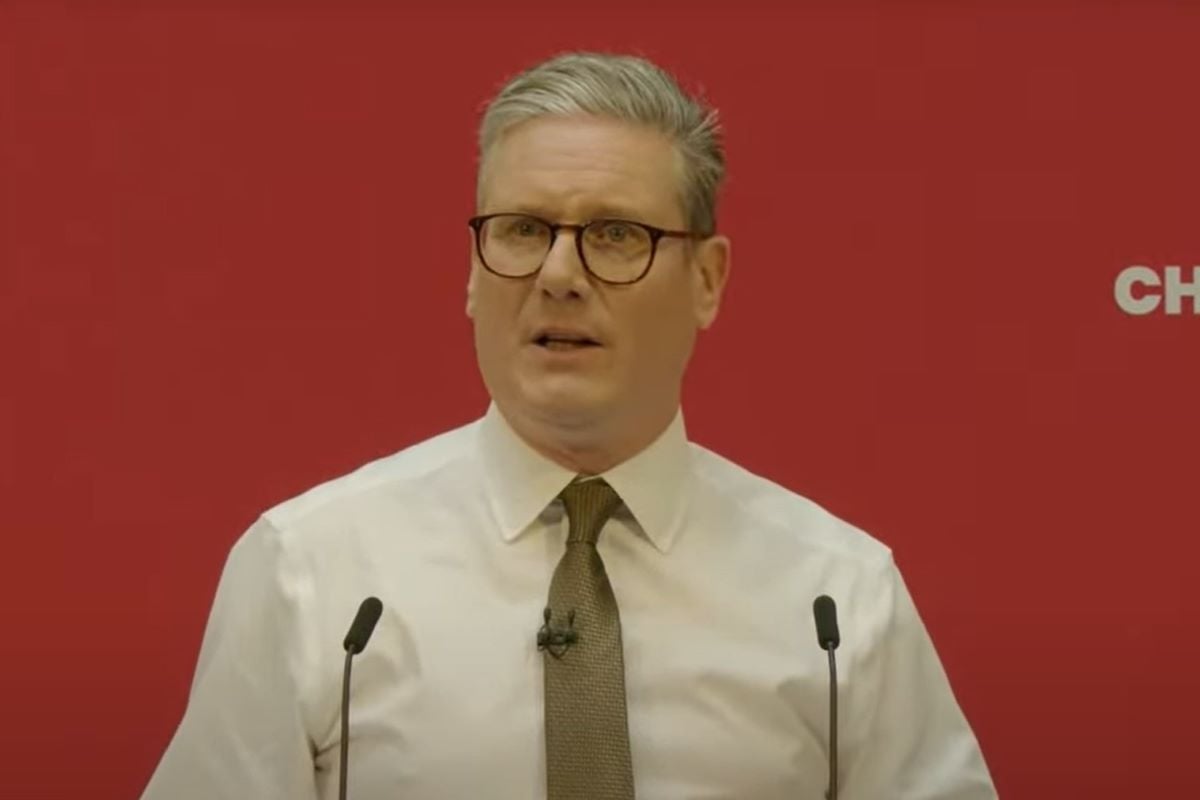
Labour Leader Keir Starmer launching the Labour Party manifesto
Labour vows to improve arts accessibility
Labour's general election manifesto says arts and music will 'no longer be the preserve of a privileged few', with the party pledging to boost creative education opportunities and introduce consumer protections on ticket resales.
Labour will seek to grow the creative industries and support children to study creative subjects up to the age of 16 if it wins the forthcoming general election, the party's manifesto says.
Speaking at the launch of the manifesto, Labour leader Keir Starmer said the party is "laser-focused" on stability, growth, investment and reform adding that there was no intention to "play fast and loose with the public finances".
In light of this, no additional investment has been set out for the arts, culture, or the wider creative industries, but several previously announced policies relating to the sector have been confirmed.
READ MORE:
"Labour will take a sectoral approach and be clear-eyed about where the UK enjoys advantages over other countries," the manifesto states.
"Our approach will back what makes Britain great: our excellent research institutions, professional services, advanced manufacturing, and creative industries.
"In opposition, Labour has worked with the automotive, life sciences, and creative sectors on the approach we will take to policy. In government, we will set out plans for these and other vital sectors of the economy."
Education
In terms of education, the manifesto commits to an expert-led review of curriculum and assessment, working with school staff, parents and employers.
"Every child should have a broad curriculum with an excellent foundation in reading, writing and maths, and support to develop essential digital, speaking, and creative skills.
"Yet today, too many are missing out.
"Our reforms will build on the hard work of teachers who have brought their subjects alive with knowledge-rich syllabuses to deliver a curriculum which is rich and broad, inclusive, and innovative.
The manifesto says Labour will support children in studying a creative or vocational subject until they are 16, and ensure accountability measures reflect this.
It will also launch a new National Music Education Network – described as a "one-stop shop" with information on courses and classes for parents, teachers and children.
Accessibility
The manifesto also sets out Labour's intention to improve accessibility to the arts.
The party says it will improve access to cultural assets by requiring publicly funded national museums and galleries to increase the loans they make from their collections to communities across the country.
"With Labour, the arts and music will no longer be the preserve of a privileged few," it states.
"Culture is an essential part of supporting children and young people to develop creativity and find their voice."
"Access to music, drama and sport has become difficult and expensive because of ticket touting.
"Labour will put fans back at the heart of events by introducing new consumer protections on ticket resales."
The manifesto goes on to say there is "huge potential for growth" in the creative industries.
"Labour will implement our creative industries sector plan as part of our Industrial Strategy, creating good jobs and accelerating growth in film, music, gaming, and other creative sectors."
'Short-sighted'
Paul W Fleming, Equity’s General Secretary, said Labour's plans to grow the economy are right to include the creative industries but added that a lack of new investment for the arts is "short-sighted".
"A decade of national renewal should have a plan to meet Equity’s demand of 0.5% of GDP spent on our industries – the European average.
"No new money for the arts is short-sighted, and we will be making the case to all parties for increased funding which puts the workforce first.”
“Labour’s plan to make work pay is a broad-brush starting point, with welcome improvements to trade union freedom proposed. Equity will be looking to a new deal for working people to defend and extend royalties for our members, end upfront fees for casting directories, and use public procurement to secure union agreements in video games.”
“Welfare reform and scrapping the minimum income floor is an urgent demand for Equity’s freelance members, alongside the welcome plans to enhance their rights at work.”
Join the Discussion
You must be logged in to post a comment.